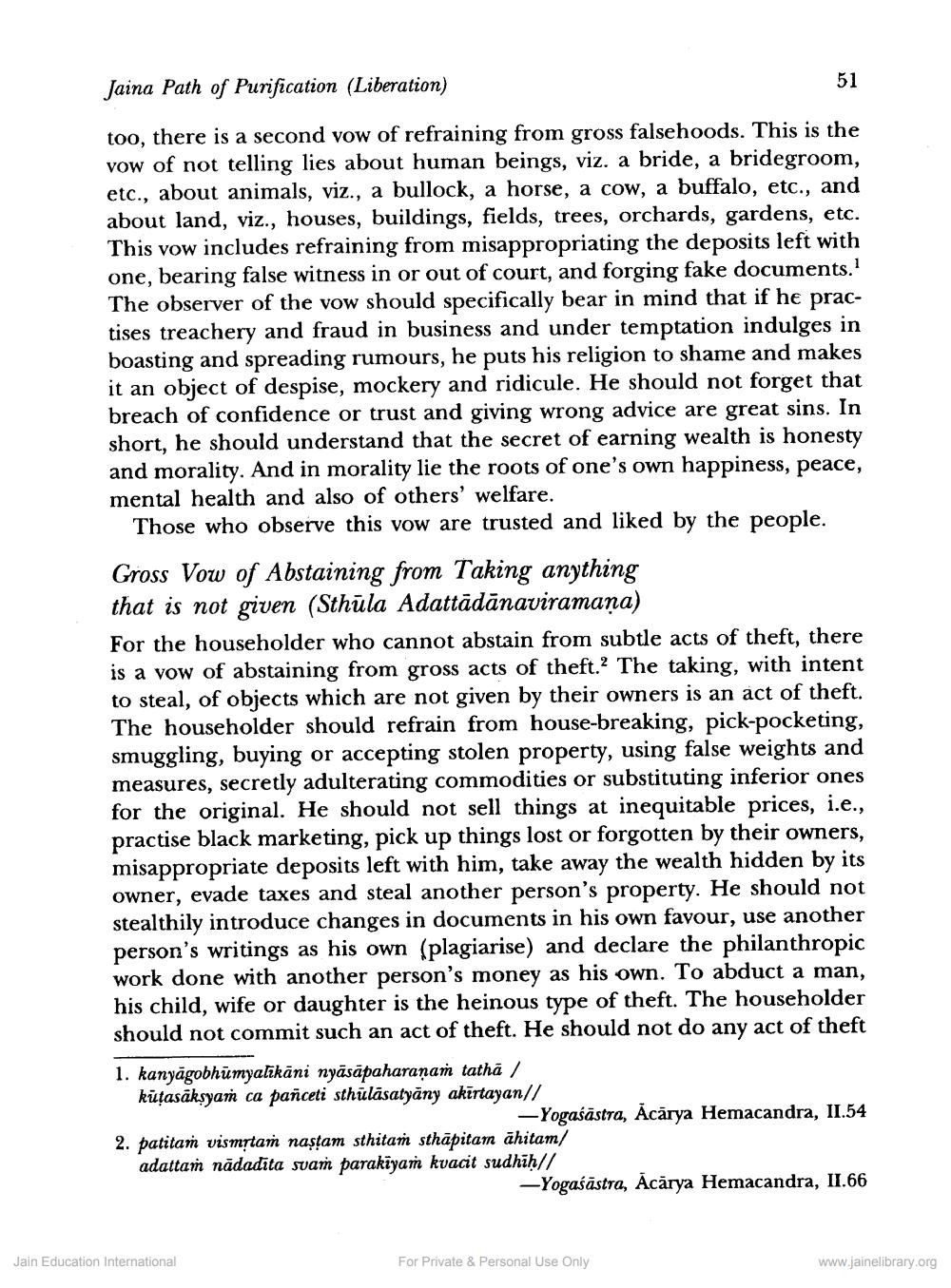________________
Jaina Path of Purification (Liberation)
51
too, there is a second vow of refraining from gross falsehoods. This is the vow of not telling lies about human beings, viz. a bride, a bridegroom, etc., about animals, viz., a bullock, a horse, a cow, a buffalo, etc., and about land, viz., houses, buildings, fields, trees, orchards, gardens, etc. This vow includes refraining from misappropriating the deposits left with one, bearing false witness in or out of court, and forging fake documents. The observer of the vow should specifically bear in mind that if he practises treachery and fraud in business and under temptation indulges in boasting and spreading rumours, he puts his religion to shame and makes it an object of despise, mockery and ridicule. He should not forget that breach of confidence or trust and giving wrong advice are great sins. In short, he should understand that the secret of earning wealth is honesty and morality. And in morality lie the roots of one's own happiness, peace, mental health and also of others' welfare.
Those who observe this vow are trusted and liked by the people.
Gross Vow of Abstaining from Taking anything that is not given (Sthūla Adattādānaviramana) For the householder who cannot abstain from subtle acts of theft, there is a vow of abstaining from gross acts of theft.? The taking, with intent to steal, of objects which are not given by their owners is an act of theft. The householder should refrain from house-breaking, pick-pocketing, smuggling, buying or accepting stolen property, using false weights and measures, secretly adulterating commodities or substituting inferior ones for the original. He should not sell things at inequitable prices, i.e., practise black marketing, pick up things lost or forgotten by their owners, misappropriate deposits left with him, take away the wealth hidden by its owner, evade taxes and steal another person's property. He should not stealthily introduce changes in documents in his own favour, use another person's writings as his own (plagiarise) and declare the philanthropic work done with another person's money as his own. To abduct a man, his child, wife or daughter is the heinous type of theft. The householder should not commit such an act of theft. He should not do any act of theft 1. kanyāgobhūmyalikāni nyāsāpaharanam tathā / kūțasāksyam ca pañceti sthūlāsatyāny akirtayan//
— Yogaśāstra, Acārya Hemacandra, II.54 2. patitam vismytam nastam sthitam sthāpitam ähitam/ adattam nādadita svam parakiyaṁ kvacit sudhiḥ//
-Yogaśāstra, Acārya Hemacandra, II.66
Jain Education International
For Private & Personal Use Only
www.jainelibrary.org




